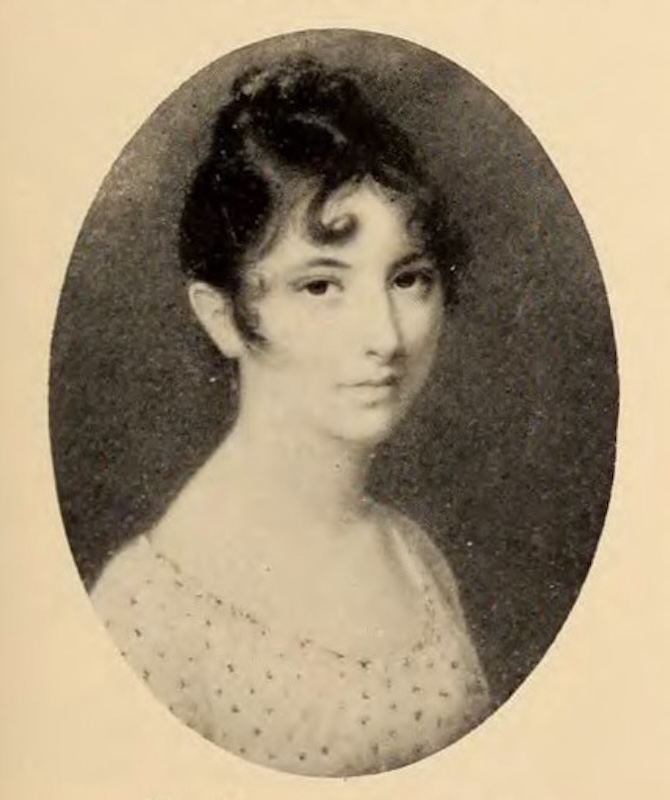

Image: Rebecca Gratz. 1878 Ruel P. (Ruel Pardee) Tolman.


Conversation-based seminars for collegial PD, one-day and multi-day seminars, graduate credit seminars (MA degree), online and in-person.

No related resources
Born into a prominent Jewish family in Philadelphia, Rebecca Gratz (1781–1869) came of age during a period in which most reform efforts were led by religiously motivated Christians. Troubled at the idea that poor Jews had to either forgo much-needed assistance or stoically endure the concerted missionary efforts of their benefactors, in 1819 Gratz organized the first independent Jewish women’s charitable society in America. The Female Hebrew Benevolent Society (FHBS) focused its efforts exclusively on Jewish families, supporting their religious traditions as well as their material needs.
In this organizational report from 1835, Gratz (who served as the recording secretary for the FHBS) suggests the cost to American Jews of living as a religious minority in a land of religious freedom is a certain type of spiritual impoverishment. She calls for a renewed emphasis on religious training as the necessary corrective. In 1838, shortly after this report was written, Gratz split the educational element of the FHBS into a new organization, the Hebrew Sunday School. The faculty of the Hebrew Sunday School in Philadelphia were all women and Gratz likewise urged Jewish women in the nation’s other major cities to devote themselves to similar efforts in order to counteract Reform Judaism, which was becoming popular among younger American Jews at the time.
Ladies,
The season has again arrived when we are amenable to renew our efforts for the relief of those who need aid from their fellow sojourners in this world of many wants and many sufferings—and while we feebly put forth a diminished strength to relieve the cravings of nature we would suggest the wish that our abilities might be directed to a more pressing need—the mental impoverishment of those who are rising to take their place among the thousands of Israel scattered throughout the facilities of the earth. In a little while the remnant of those who first pled for the female poor of this congregation will have passed away and perhaps the sweetened memorial raised to their names will be recorded that they laid the corner stone to this just tuition. It is not too much to hope—too much to expect from the daughters of a noble race, that they will be foremost in the work of charity—provided their young hearts are impressed with its sacred duties. Let us then plead for the means of “training them in the way they should go”—we have a teacher desirous of opening his store of useful knowledge for the improvement of the rising generation—his opp[ortunity] of study in the original language of the scriptures gives him advantages few here [illegible] and then unto many of the difficulties complained of among us may be attributed.
The want of education shuts the door of advancement into private or public nations—which an Israelite might obtain in this country—and the consummation of our highest ambition may even be the wiping off of that stigma which rebellion and disobedience have—upon the nation—may be accomplished, when enlightened Jews mingle with the inhabitants of the land respecting their own laws and practicing the virtues required of the chosen people of God. Such as must prepare the way for that unto the gathering of the people be—we need look for no greater miracle than the changed heart that an enlightened faith—piety, self-respect and charity will engender to make our wilderness bloom—and a light shine on the on the mountains of Zion—but this is in advance of our present purpose—the grain must be sown before the harvest can be reaped and if we are only employed in the humblest occupation of preparing the soil for future seasons of prosperity—our labor will not be lost to that all seeing eye that searches out the smallest seed of good. . . . Let us then still thrive to . . . give freely of our own means. . . . [W]e invite . . . every female of the congregation to take an interest in this society . . . aid will be gratefully received money or moneys worth that can be converted into use for the poor and [from] those who have nothing else to give, we ask good will. Good wishes and good words to cheer and cherish the spirit of clarity in which the Female Hebrew Benevolent Society greets and claims kindred with any daughter of Israel.

Conversation-based seminars for collegial PD, one-day and multi-day seminars, graduate credit seminars (MA degree), online and in-person.